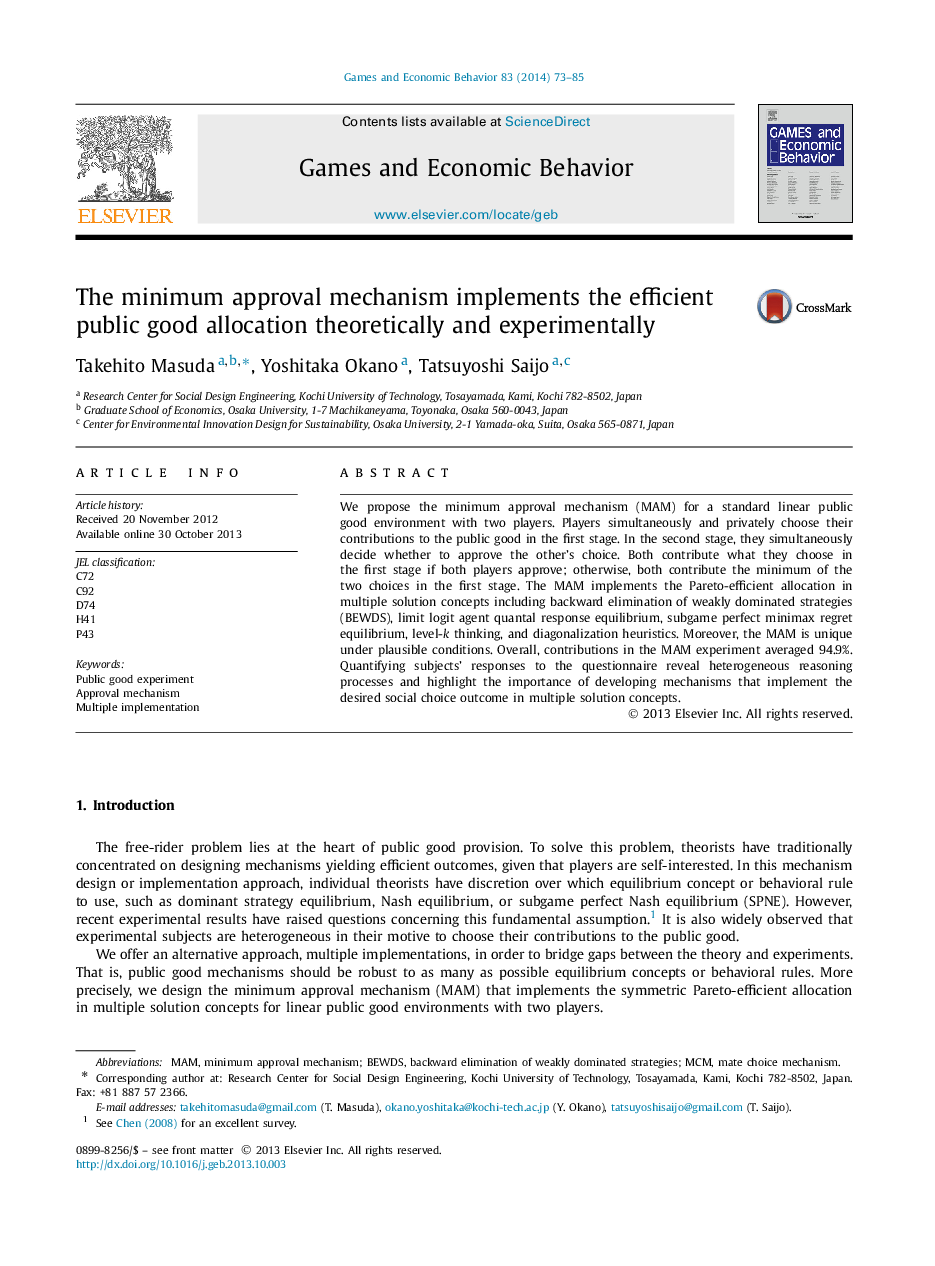| Article ID | Journal | Published Year | Pages | File Type |
|---|---|---|---|---|
| 5071894 | Games and Economic Behavior | 2014 | 13 Pages |
â¢We design the minimum approval mechanism for efficient public good provision.â¢We consider implementation in backward elimination of weakly dominated strategies.â¢The implementation result also holds for other equilibrium concepts/heuristics.â¢As predicted, contributions averaged 94.9% in the overall experiment.â¢Questionnaire analysis confirmed subjectsʼ heterogeneity in reasoning processes.
We propose the minimum approval mechanism (MAM) for a standard linear public good environment with two players. Players simultaneously and privately choose their contributions to the public good in the first stage. In the second stage, they simultaneously decide whether to approve the otherʼs choice. Both contribute what they choose in the first stage if both players approve; otherwise, both contribute the minimum of the two choices in the first stage. The MAM implements the Pareto-efficient allocation in multiple solution concepts including backward elimination of weakly dominated strategies (BEWDS), limit logit agent quantal response equilibrium, subgame perfect minimax regret equilibrium, level-k thinking, and diagonalization heuristics. Moreover, the MAM is unique under plausible conditions. Overall, contributions in the MAM experiment averaged 94.9%. Quantifying subjectsʼ responses to the questionnaire reveal heterogeneous reasoning processes and highlight the importance of developing mechanisms that implement the desired social choice outcome in multiple solution concepts.
